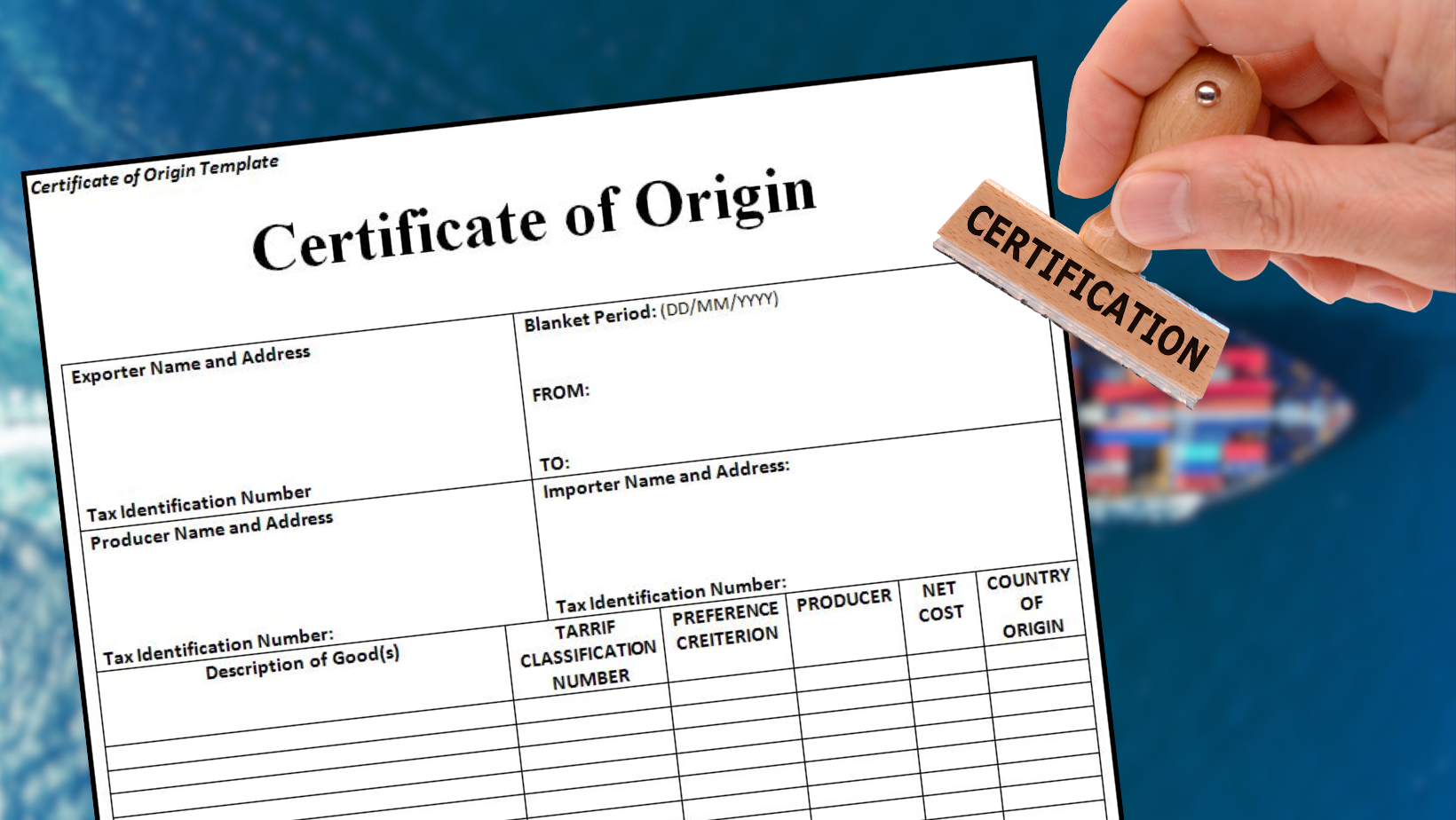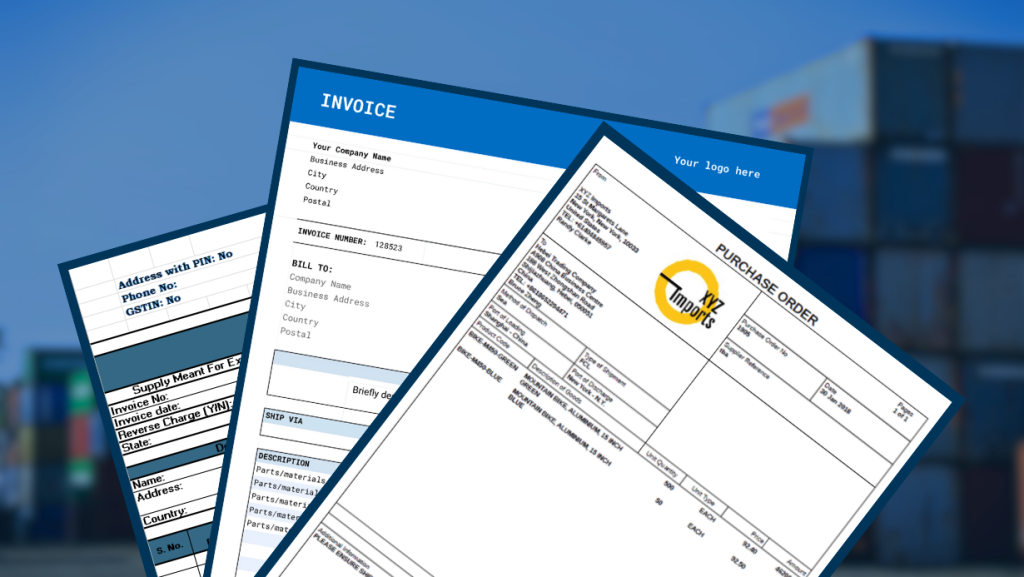
A Certificate of Origin (COO) is a certificate used in international trade to certify the country of origin of a particular product manufactured. It is issued by the product manufacturer and provides information about the origin of the goods being exported. The certificate is usually required by customs authorities in the importing country to determine the eligibility of the goods to ensure conformity with trade regulations.
Key information mainly included in a Certificate of Origin:
- Exporter Information: Important details about the exporter, such as name, address, and contact information.
- Importer Information: Necessary details about the importer, including their name and address.
- Consignee Information: Information about the party receiving the goods.
- Description of Goods: A thorough description of the products being exported, including quantity, weight, and other important details.
- Country of Origin: The certificate clearly states the country where the goods were produced or manufactured.
- Authorized Signature: The certificate is usually allotted by an authorized representative of the chamber of commerce of that particular govt.

Certificates of Origin is important for several reasons:
- Tariff Treatment: Some countries provide preferential tariff rates or trade agreements based on the origin of the goods. The certificate helps to make sure that the imported goods qualify for such benefits.
- Customs Clearance: Customs authorities use the certificate to check the authenticity of the details provided and to determine the appropriate duties and taxes.
- Trade Regulations: The certificate helps in conforming with the trade regulations of the importing country.
Different countries may have different requirements and forms for Certificates of Origin, and exporters need to obey these requirements to facilitate smooth international trade transactions.
A preferential certificate of origin and a non-preferential certificate of origin are two different documents used in international trade to verify and certify the origin of goods. The purpose of these certificates is to find the source of the products being exported and to apply specific trade agreements, tariffs, or preferences based on that origin.
Preferential Certificate of Origin:
A preferential certificate of origin is a document that specifies the origin of goods and qualifies them for preferential treatment under a particular trade agreement.
A preferential certificate is used when goods are eligible for reduced or zero tariffs, quotas, or other trade preferences as mentioned in a bilateral or multilateral trade agreement. These agreements are often planned to promote closer economic ties between participating countries.
Non-preferential Certificate of Origin:
A non-preferential certificate of origin is a document that simply certifies the country of origin of goods without providing any preference or without any specific trade agreement.
It is used for usual trade purposes and is required for customs clearance in many countries. The certificate provides details about where the goods were produced or manufactured.

Documents required to obtain Certificate of Origin:
• Cover letter sent to the Director General of the Indian Chamber of Commerce (ICC)
• Filled Certificate of Origin certificate form
• Shipping Invoice, Packing List, and Letter of Credit stamped and signed by the applicant
• PAN and IEC issued to the exporter
• Proper clearance certificate from the customs department stating that all necessary taxes and duties have been paid
Understanding the significance of the Certificate of Origin becomes more important. The certificate not only enables hurdle-free cross-border transactions but also contributes to the overall transparency and moral principles of the international trade system. The Certificate of Origin stands as proof of the commitment to fair trade practices and confirmation of regulatory requirements. As we navigate the complexities of the global trade market, recognizing the value of the certificate of origin becomes a key element in attending successful and ethical business relationships across borders.
